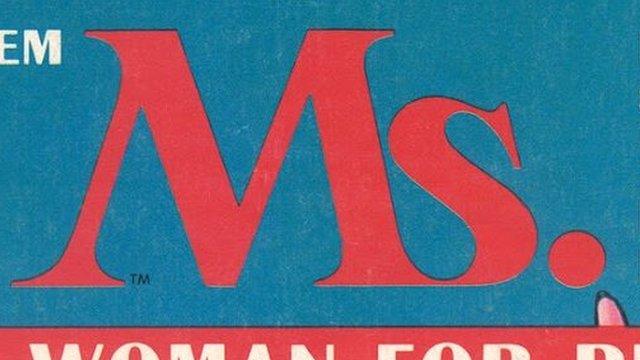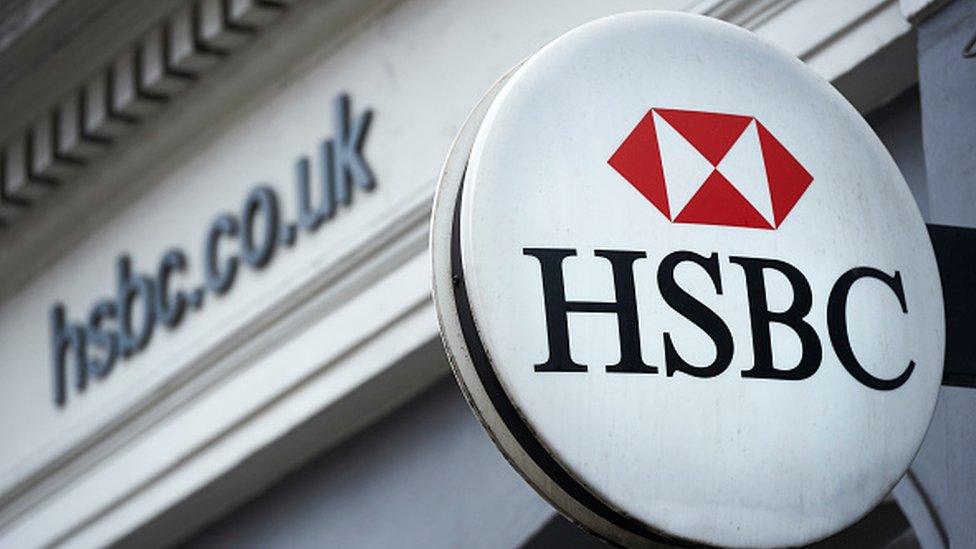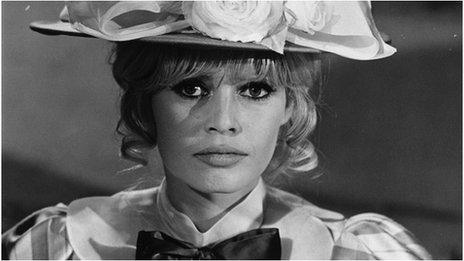Miss, Ms or Mrs: Which honorific do you go by?
- Published

Instead of assuming someone's title, Helen Hall asks women what they prefer to go by
Do you use Miss, Ms, Mrs, the gender-neutral Mx or just go without?
While some honorifics reveal a woman's marital status, Ms does not.
Following the passing of American feminist Sheila Michaels, credited with bringing the term Ms into mainstream use, we asked you what honorific you choose to go by.
Here are some of the stories you have shared with us.
Single or married
Helen Hall, 51, from Scarborough in the UK uses the term Ms.
"I started to use Ms for two reasons," she says.
"Beyond the age of 25, Miss feels rather undignified. Also, I began to resent having to reveal my marital status.
"When organisations see me listed as Ms, they always call me Mrs Hall. I don't correct them, as I don't want to make a big deal of it.
"I dealt face-to-face with customers for 15 years, and when taking details from a woman, I would always ask, 'Which title do you prefer?' Simple."
Old-fashioned terms

Jennie Jonasson, in Canada, thinks terms giving away marital status - Miss and Mrs - belong in the 'dinosaur era'
Jennie Jonasson, 51, from Montreal, Canada says Mrs and Miss are outdated.
"I think people should be free to use a name that they want to be called by.
"I go by Ms. When my husband and I received an invoice addressed to Mr and Mrs, I sent it back with the Mr and Mrs scratched out and wrote: 'Mr [husband's surname] and Ms Jonasson'.
"Mrs and Miss to me are dinosaur terms that belong in the Downton Abbey era!"
'Keeping your identity'

Geraldine Downer in Mexico, who goes by Ms, said it helps her hold on to her identity
Geraldine Downer, 40, from Mexico City who is married explains why she uses Ms.
"I live in Mexico, where it's not obligatory to change your surname when married.
"I have been married for nearly seven years now but I use Ms because I am certainly not a Miss but did not want to identify as a Mrs either because I have not adopted my husband's surname.
"It's important to keep your identity even after marrying!"
Married and a Mrs
Wendy Shepherd says: "I do not use the honorific title Ms.
"Before I was married I was Miss and after 57 years of marriage I am Mrs.
"I am old fashioned and I hope a few others are as well."
Dr Morris I presume?
Francine Morris, 48, from Salford in the UK has used a range of honorifics.
"During my first marriage, I took my husband's name and accepted Mrs. I reverted back to my maiden name as I didn't want my ex-husband's name on my degree certificates.
"I didn't need to give up my own name, my identity and take on that of a man.
"I got married again but kept my name and used Ms whenever possible until I got my PhD and became Dr.
"Now people presume that Dr Morris is a man. You can't win!"
Not a possession

'I don't want to be considered a possession of my husband,' says Wendy Jo Gertjejanssen
Wendy Jo Gertjejanssen, 50, from Minnesota in the US has used Ms for a long time.
"I only ever use Ms and have used it since I was my early twenties.
"I find it insulting that I would be considered a possession of my husband while he is an individual, being a Mr.
"I get frustrated in Germany where I am Mrs Gertjejanssen or even Dr Mrs Gertjejanssen. And when purchasing an airline ticket, there is no Ms choice on some European airlines."
Miss stereotype
Maeghan Sheehan, 26, from Vancouver, Canada doesn't like the connotations the character Bridget Jones has on Miss.
"I like using Miss as I am young and single but I think should I remain unmarried later in life, I'd use Ms.
"I don't like the idea of the Bridget Jones stereotype associated with Miss.
"I think it's great that there is the Ms option."
Female classification

Jane MacAllister in England says womens' honorifics shouldn't classify them any differently than men
Jane MacAllister, 64, from Kent, UK uses Ms but wonders why men do not have similar honorifcs.
"I use Ms though I am still often called Mrs. When my husband sadly died, I dropped my husband's last name of Dukes to become Jane MacAllister once again.
"However I am often called Mrs MacAllister and it drives me a bit nuts because I never was Mrs MacAllister. That was my mum not me!
"Mr tells you nothing about a man's marital status so why are women classified differently?"
By Lamia Estatie, UGC and Social News team
- Published7 July 2017

- Published30 March 2017

- Published3 November 2016

- Published12 January 2012
